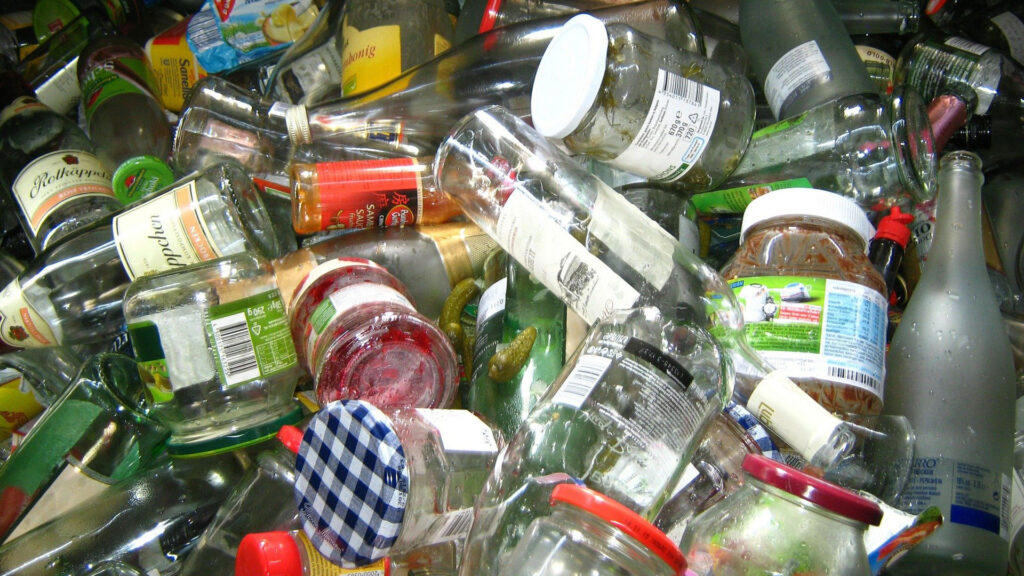There’s nothing like enjoying a delicious meal outside in the summer, and yellow jackets appreciate it more than ever in the late summer months. You may not have ever considered this, but it’s possible your trash and recycling bins offer a buffet for yellow jackets at this time of year, which could result in dangerous stings for you, your neighbors and those who empty your bins.
We see an increase in the number of yellow jackets that frequent recycling and trash bins during August and September. Their nests have grown over the months, and they forage for food in the warm weather. Common throughout New England, we receive frequent bee removal requests for yellow jackets.
Yellow Jacket Facts
Yellow jackets can build nests above and underground, and sometimes nest in other empty structures. They are about ½” long and yellow and black, so they are often mistaken for honeybees (honeybees are orange and brown with furry bodies).
You should know that:
- Yellow jacket nests may contain upwards of 5,000 workers
- They are extremely aggressive, especially the females (the males cannot sting, but they only comprise a small part of the colony), and will attack if their nest is being threatened
- When disturbed, yellow jackets can become angry about protecting their food source
- They are very territorial
- Unlike honeybees, yellow jackets can sting repeatedly
- Beyond being painful, many people have serious allergic reactions to their stings
How to Get Rid of Yellow Jackets
Attracted to sweet-smelling scents, yellow jackets are drawn to sugary substances, like leftover sodas and juices in cans and bottles. They also seek out carbohydrates and protein, like meat, to feed to their developing young.
Your recycling bins may provide a buffet for yellow jackets, which is why we recommend that you rinse food and drink remnants off packaging before throwing it in your recycling bin or trash.
Getting rid of yellow jacket nests is tricky and dangerous, so it’s best left to trained professionals. If you suspect you have a nest on your property, contact us right away.

